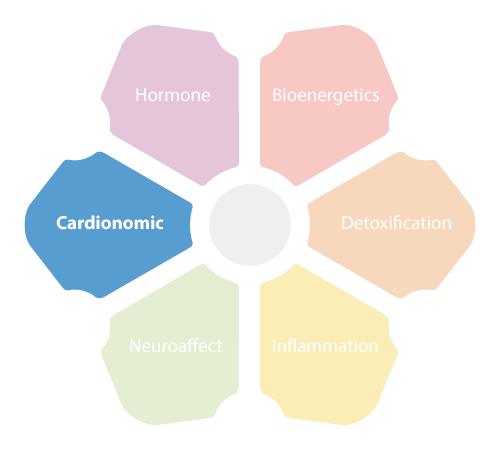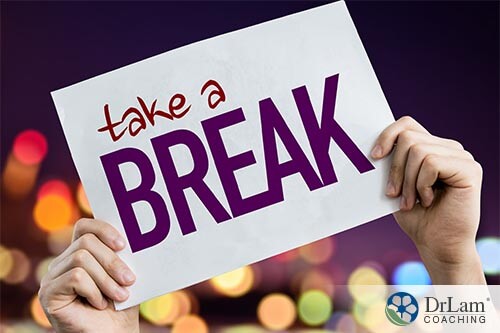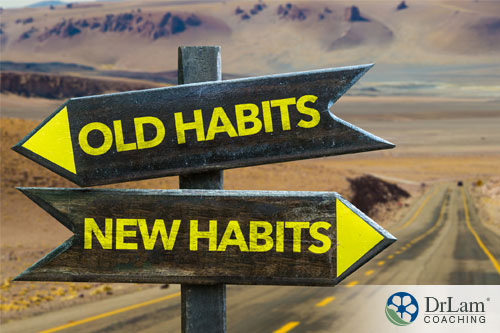 “The manager wants to see you in his office.” When these words are spoken, the stress begins to build. You wonder if you’re in trouble; your heart rate increases; the palms of your hands start to get sweaty; your stomach feels like your breakfast suddenly turned into a brick; it is hard to stay calm. Workplace stress can manifest in many ways physically and emotionally for each person. And it’s not just from one situation like being called into the manager’s office. It can come from multiple directions. Let’s look at just a few things that cause workplace stress and how dealing (or not dealing) with these situations can also affect your health.
“The manager wants to see you in his office.” When these words are spoken, the stress begins to build. You wonder if you’re in trouble; your heart rate increases; the palms of your hands start to get sweaty; your stomach feels like your breakfast suddenly turned into a brick; it is hard to stay calm. Workplace stress can manifest in many ways physically and emotionally for each person. And it’s not just from one situation like being called into the manager’s office. It can come from multiple directions. Let’s look at just a few things that cause workplace stress and how dealing (or not dealing) with these situations can also affect your health.
Before you can get a grasp on what you are facing at work each day, it is best to stop for a few moments and specifically define what type of workplace stress that you are dealing with and how it affects you.
Hostile work environments can show up in a variety of ways, and while the term “hostile” can be difficult to accept because it sounds so harsh, but it is best to call the environment exactly what it is. These may be very noticeable, or they can be hidden. Some of the signs can be:
It looked exciting on the job application, but some employments do not end up being as exciting and life-fulfilling as you had hoped when you are working at it for 40 hours a week. Some jobs are boring, repetitive, or unfulfilling for you right now.
Sometimes work becomes a problem because the job is very stressful or too difficult for you to manage. These pressures may make you feel that you are less than able to perform the task, or you start doubting your ability to work at an optimal level. These feelings can also begin to cause symptoms of anxiety or depression in you because of a sense of failure. All of these responses can create workplace stress.
 Are you going to lose your job? Rumors of decreasing the workforce or an economic crash can cause difficulties at work and increase the workplace stress that may already be at high levels. Other uncertainties may appear as wondering who will get the promotion, how will new computerized software change your daily tasks, or considering how new construction in the unit may mean that your desk is now moved away from your best friend and you feel lonely. All of these bring feelings of uncertainty to you and can cause a lot of angst.
Are you going to lose your job? Rumors of decreasing the workforce or an economic crash can cause difficulties at work and increase the workplace stress that may already be at high levels. Other uncertainties may appear as wondering who will get the promotion, how will new computerized software change your daily tasks, or considering how new construction in the unit may mean that your desk is now moved away from your best friend and you feel lonely. All of these bring feelings of uncertainty to you and can cause a lot of angst.
Whether you call them conflicts or miscommunications, a good work environment depends on people getting along and working together as a team. In most organizations though, this rarely happens without some difficulty, and workplace stress occurs.
Some people may feel that other employees do not do their job or they are exceptionally slow. Gossiping amongst co-workers breeds gang-like tendencies and distrust for those who are outside of the clique. Rumors of change within the organization also create irritations that can come across as short tempers and irritability.
For those who are struggling with workplace harassment, they may feel that the upper management does not listen to them or that they do not feel safe reporting such issues without repercussions.
The proper leadership channels often get difficult to discern during times of workplace stress. Employees often feel that management does not listen to them, or that they are expected to work at optimal levels even when the workload becomes too high. Co-workers leaving also brings increased workplace stress. If a co-worker did not leave on good terms, wondering if they got fired and why can breed more gossip about the situation.
Short staffing, or working without the optimal level of employees, can also create more workplace stress. Employees are responsible for more work without enough people to complete the tasks.
Changes in leadership are also problematic. Learning to work with a new boss is very stressful - who will become their new favorite, do they have favorites, is this new boss easy to get along with, or are they are a micro-manager? A large corporation buying out a small organization can also bring a lot of change, which carries a great deal of uncertainty.
It is good to stop for a moment and realize that your body already has systems in place to assist with stress. If this were not the case, your body would never have survived childbirth or the pressure of the first diaper change. The human species never would have survived ice ages or running from tigers.
 Understanding the stress of influenza or getting sick with a stomach virus is a good way to approach the problem. A bacteria or virus attacks your body, and the NeuroEndoMetabolic (NEM) Stress Response sees the invaders, sends out help via the inflammation circuit through the white blood cells, killer-T cells, and B-cells. They attack the bacteria and eventually kill it; you may notice some symptoms such as a high fever and aches and pains, but typically you recover from it within a few days and go back to work.
Understanding the stress of influenza or getting sick with a stomach virus is a good way to approach the problem. A bacteria or virus attacks your body, and the NeuroEndoMetabolic (NEM) Stress Response sees the invaders, sends out help via the inflammation circuit through the white blood cells, killer-T cells, and B-cells. They attack the bacteria and eventually kill it; you may notice some symptoms such as a high fever and aches and pains, but typically you recover from it within a few days and go back to work.
Emotional stress, such as what is typically seen in workplace stress, causes a similar reaction to the response toward bacteria and viruses. As the emotion is interpreted in the brain, the NEM Stress Response sends out help to deal with the emotional stress. This time, instead of the killer-T cells and B-cells, the NEM Stress Response signals the adrenal glands to produce norepinephrine. This chemical is potent, and it stimulates the amygdala. This part of the brain is responsible for helping regulate your mood and emotional responses of fear and anxiety. When this area is stimulated, it can lead to alertness. This system is used to handle day-to-day stress and moderate exercise.
Norepinephrine also signals the hypothalamic-pituitary-adrenal (HPA) axis to begin working. This crucial three-part system helps to control many areas of the body. The HPA regulates digestion, sexual responses, emotional responses, energy metabolism, and fat storage.
Norepinephrine is not done, however. It releases more hormones through a variety of passageways and connections, that eventually act upon the adrenal glands again to produce anti-stress hormones, the most well-known of which is cortisol. Cortisol is present to help cool the body’s responses to the increased stress and inflammation and return them to normal once the pressure is gone.
Instead of the stress coming and going, it stays around for months or even years at work. The body is continually making the hormones to deal with the stress, but eventually, the supplies begin to wear out. When this happens, adrenal fatigue often results.
If the body had endless supplies of nutrients, exercise, and no stress, perhaps Adrenal Fatigue Syndrome (AFS) would not occur. However, that is not the case. Workplace stress is one of the chronic stressors that commonly leads to adrenal fatigue. AFS is not just one symptom or an illness that is caused by one bacteria. It is a conglomeration of many symptoms and conditions.
Think about it this way, just like your car requires gas fill-ups, oil changes, and routine maintenance, so do you. But if you never change the oil or rotate the tires, eventually the car will begin to deteriorate. Driving up treacherous terrain is hard on the tires, heavy layers of salt on the road in the winter can rust the frame of the vehicle, and rear-end bumps and scrapes also damage the car. Symptoms of AFS from workplace stress hopefully are not bumps and scratches from violent impacts, but they can show up as:

At its core, AFS’s presence is a signal that the “body has reached the maximum threshold for handling the complexity of life.” Ignoring the early warning signs of tiredness and nausea typically leaves a person feeling more and more exhausted and sick. Instead of eating healthy, nutritious foods, comfort foods may feel good initially, but these are hurting the body instead of helping it.
The uncertainties that workplace stress brings often cannot be mitigated easily. Co-workers and management difficulties may remain or take a long time to resolve. Financial and career considerations make it difficult to just walk away from a challenging work situation.
But what you can do right now is make changes to your diet and lifestyle to support your body as much as possible. The more that you can add to your internal warehouse stores, the better your body will be able to continue producing the right hormones to deal with the stress.
First, consider trying meditation, adrenal breathing, yoga, tai chi, or getting more exercise to help build your reserves against stress. Try to reduce any other stressors you can, don’t overschedule yourself, and if anxiety or depression is a factor, make sure you take the time to take care of yourself. Explore some additional stress relief techniques to help cope with work stress.
Then, try some of these suggestions for ensuring your diet is able to help you cope with stress.

If you are noticing that some days you feel more bloated or that the food did not sit well in your stomach, keep a food and symptom journal for 7-14 days. This way, you can see which types of foods and symptoms may be related.
When shopping, purchase foods that are free-range, organic, local, and produced without added hormones. Try to choose foods high in omega-3s, magnesium, and vitamin C to help reduce stress.
Providing your body with the most nutritious and safe foods can help ensure you have the energy and strength that you need to deal with the stress that you are facing.
© Copyright 2014-2019 Michael Lam, M.D. All Rights Reserved.
Workplace stress is no different than the common cold or cancer. All of these affect the body in detrimental ways; stress is stress to the body, and the body will work tirelessly with every resource it has to return itself to normal.
